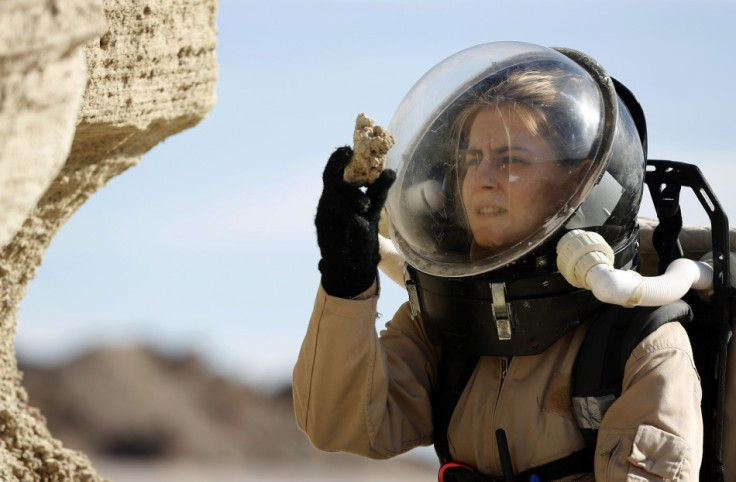Situation Vacant: One-way Ticket to Mars to start New Earth Colony

A Dutch company is seeking intrepid travellers who are interested in a one-way ticket to Mars to build a community of settlers on the planet by 2023.
It could be the trip of a lifetime, a long holiday to a beautiful destination with plenty of peace and quiet.
The company, Mars One, has already received thousands of keen applicants who are ready to go on the intrepid space mission, never to return to Earth.
Applicants need to be resilient, adaptable, resourceful and work well in a team. The entire project will be televised, from the TV show Big Brother-like selection process to landing and into the mission.
The company, a not-for-profit organisation says: "Mars One intends to fund this decade-long endeavour by involving the whole world as the audience of an interactive, televised broadcast of every aspect of this mission, from the astronaut selections and their preparations to the arrival on Mars and their lives on the Red Planet."
Successful applicants will have extensive training to prepare physically and mentally. Energy will be generated from solar panels, water will be recycled and extracted from soil and the astronauts will grow their own food.
There will also be emergency rations and explorers will join every two years.
Ambassador for the project, Professor Gerard 't Hooft, a recipient of the Nobel Prize for theoretical physics in 1999, admits there are unknown health risks. He told the BBC that the radiation is "of quite a different nature" than anything which has been tested on Earth.
"They [the applicants] will be told that there are risks, but it will be our responsibility to keep the risks within acceptable odds."
The Martian surface is very hostile to life, says Dr Veronica Bray, from the University of Arizona's Lunar and Planetary Laboratory, who has her doubts about the project.
"Radiation exposure is a concern, especially during the trip. This can lead to increased cancer risk, a lowered immune system and possibly infertility."
To minimise radiation, the project team will cover the domes with several metres of soil, which the colonists will have to dig up.
"I have no doubt that we could physically place a human being on Mars. Whether they'd be able to survive for an extended period of time is much more doubtful," adds Dr Bray.
It's estimated that it will cost an estimated £3.8bn to send the first group to Mars, and there are sceptics who doubt whether Mars One will attract enough investors to raise the required funds.
However, Kai Staats, Director of Business Development for Mars One remains hopeful, saying: "Raising a few million [US dollars] in the coming months may seem insignificant in the shadow of the pending billions required, but we are taking it one step at a time."
Is there life on Mars?
John Grotzinger, the chief scientist on Curiosity, which has been exploring the Martian surface, says the Red Planet once had the right conditions for life.
"There was flowing surface water, which might have been possible to drink," he told Macleans magazine. "This finding comes courtesy of the Curiosity rover, which drilled and analysed a rock sample from an ancient stream bed at Gale Crater on Mars.
"It's the first habitable environment we know of, other than on Earth. As the first primitive forms of life were emerging on our planet, it now seems possible primitive life forms such as microbes might have been present on the red planet."
© Copyright IBTimes 2025. All rights reserved.




















